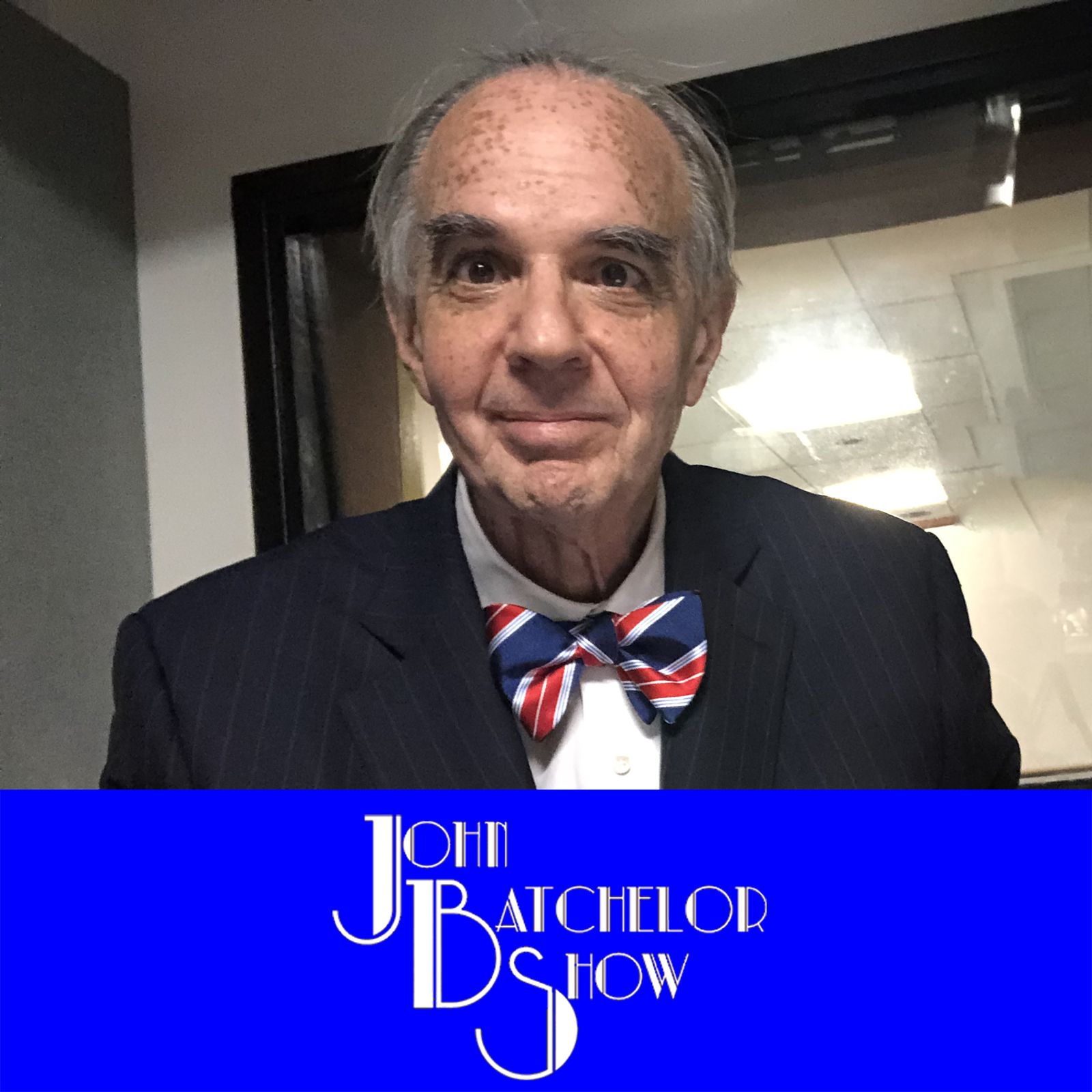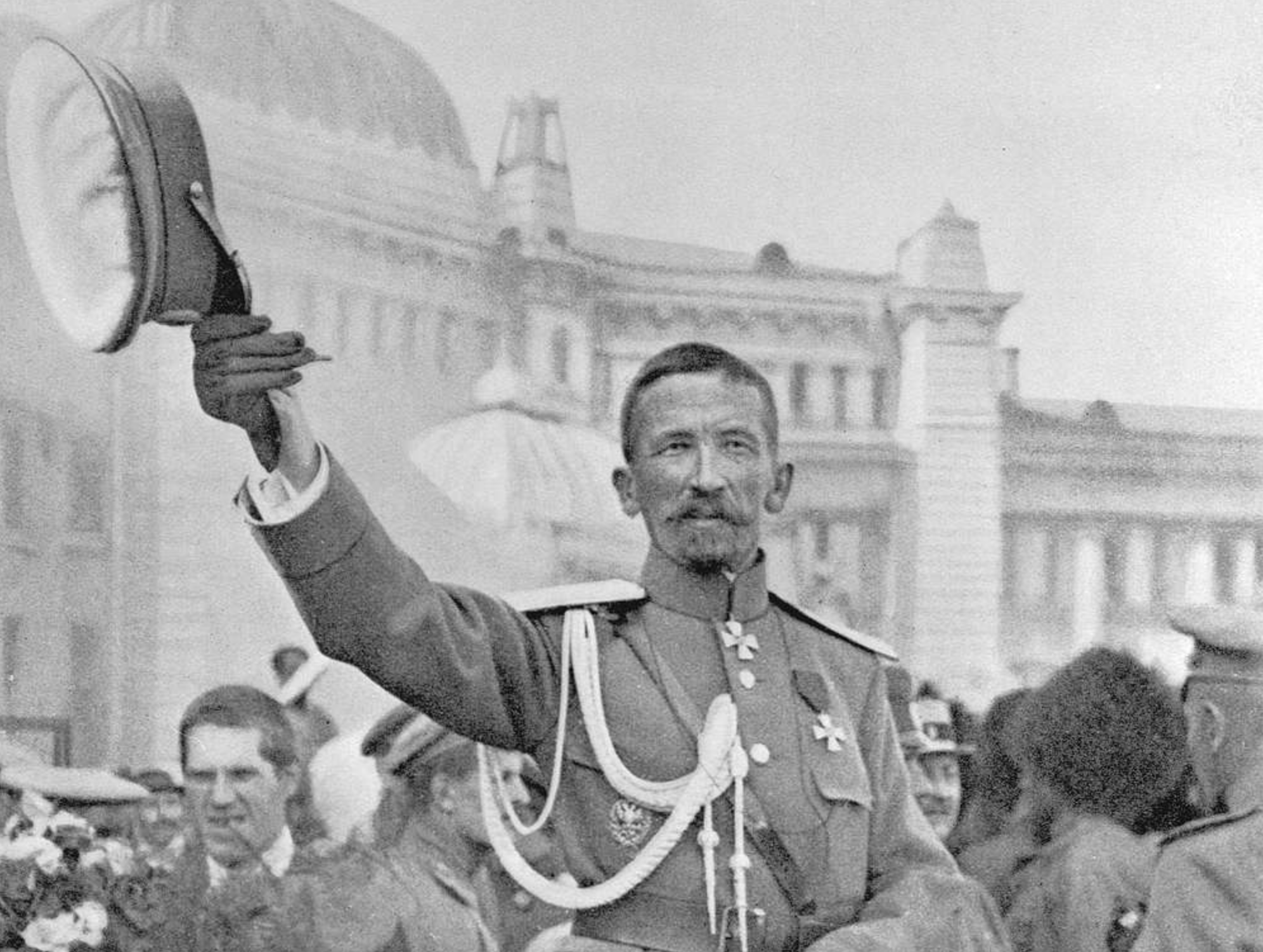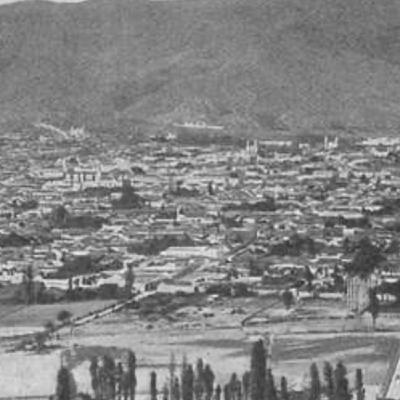44: SHOW 11-3-25 CBS EYE ON THE WORLD WITH JOHN BATCHELOR THE SHOW BEGINS IN THE DOUBTS ABOUT VENEZUELA. FIRST HOUR 9-915 Middle East Disorder, Gaza Ceasefire, and Lessons from War Reporting. Bill Roggio and Husain Haqqani address the persistent disorde
Update: 2025-11-04
Description
SHOW
11-3-25
CBS EYE ON THE WORLD WITH JOHN BATCHELOR
1895 TRINIDAD
THE SHOW BEGINS IN THE DOUBTS ABOUT VENEZUELA.
FIRST HOUR
9-915
Middle East Disorder, Gaza Ceasefire, and Lessons from War Reporting. Bill Roggio and Husain Haqqani address the persistent disorder in the Middle East, noting that the Gaza ceasefire ("hudna") is only a pause. Ambassador Haqqani critiques the flawed concept of pursuing a "war to end all wars," suggesting the world is a situation to endure, not solve permanently. Bill Roggio compares the current stabilization efforts to the failed attempts in Afghanistan following the Taliban's ouster, noting that key players like Hamas remain undefeated or unwilling to disarm. Both experts stress the difficulty of verifying initial reports of mass violence, urging patience and skepticism regarding premature assumptions about perpetrators or motivations.
915-930
Middle East Disorder, Gaza Ceasefire, and Lessons from War Reporting. Bill Roggio and Husain Haqqani address the persistent disorder in the Middle East, noting that the Gaza ceasefire ("hudna") is only a pause. Ambassador Haqqani critiques the flawed concept of pursuing a "war to end all wars," suggesting the world is a situation to endure, not solve permanently. Bill Roggio compares the current stabilization efforts to the failed attempts in Afghanistan following the Taliban's ouster, noting that key players like Hamas remain undefeated or unwilling to disarm. Both experts stress the difficulty of verifying initial reports of mass violence, urging patience and skepticism regarding premature assumptions about perpetrators or motivations.
930-945
Post-Ceasefire Gaza Hostages and Hezbollah Regeneration in Lebanon. David Daoud and Bill Roggio discuss how following the Gaza ceasefire, the process of returning remains of slain hostages remains delayed, which Daoud suggests Hamas uses as leverage to prevent Israel from resuming conflict and entrenching a "post-war mentality." Experts note that Hezbollah is actively regenerating its military capabilities in Lebanon, bypassing disarmament efforts. Despite continuous, targeted Israeli strikes against Hezbollah personnel, there is minimal international condemnation because the organization maintains overwhelming Shiite support and the Lebanese government fails to enforce disarmament. Plans for an international security force in Gaza remain vague.
945-1000
Post-Ceasefire Gaza Hostages and Hezbollah Regeneration in Lebanon. David Daoud and Bill Roggio discuss how following the Gaza ceasefire, the process of returning remains of slain hostages remains delayed, which Daoud suggests Hamas uses as leverage to prevent Israel from resuming conflict and entrenching a "post-war mentality." Experts note that Hezbollah is actively regenerating its military capabilities in Lebanon, bypassing disarmament efforts. Despite continuous, targeted Israeli strikes against Hezbollah personnel, there is minimal international condemnation because the organization maintains overwhelming Shiite support and the Lebanese government fails to enforce disarmament. Plans for an international security force in Gaza remain vague.
SECOND HOUR
10-1015
NYC Election, Famine Propaganda, and Foreign Influence on Campus. Malcolm Hoenlein discusses the New York City mayoral election, focusing on the populist rise of candidate Zelldin Maamoun, whose anti-Israel stance and lack of economic knowledge threaten the city's large Israeli-founded tech sector. He reveals that a World Health Organization official admitted that promoting "famine" in Gaza was a deliberate communications and political pressure strategy, despite adequate food supply. Hoenlein confirms that Hezbollah is rearming and refashioning ordnance in Lebanon, forcing Israel's hand. University leaders have begun acknowledging that campus unrest was largely foreign-driven, specifically citing Iran. Indonesia is noted as a potential key player in future Abraham Accords.
1015-1030
NYC Election, Famine Propaganda, and Foreign Influence on Campus. Malcolm Hoenlein discusses the New York City mayoral election, focusing on the populist rise of candidate Zelldin Maamoun, whose anti-Israel stance and lack of economic knowledge threaten the city's large Israeli-founded tech sector. He reveals that a World Health Organization official admitted that promoting "famine" in Gaza was a deliberate communications and political pressure strategy, despite adequate food supply. Hoenlein confirms that Hezbollah is rearming and refashioning ordnance in Lebanon, forcing Israel's hand. University leaders have begun acknowledging that campus unrest was largely foreign-driven, specifically citing Iran. Indonesia is noted as a potential key player in future Abraham Accords.
1030-1045
US Military Buildup Near Venezuela and Opposition Support for Action. Ernesto Araújo and Alejandro Peña Esclusa discuss the unprecedented US military buildup at the former Roosevelt Roads Naval Base in Puerto Rico, interpreted as preparations for action against Venezuela. Peña Esclusa clarifies that the true Venezuelan opposition, led by María Corina Machado (who won 93% of the primary vote), supports US action against the Maduro drug cartel. Araújo asserts that this is viewed regionally as a "crusade against organized crime," not an invasion, and would be welcomed by people tired of instability. This credible threat is already pressuring Venezuelan military officials to negotiate Maduro's exiIT.
1045-1100
US Military Buildup Near Venezuela and Opposition Support for Action. Ernesto Araújo and Alejandro Peña Esclusa discuss the unprecedented US military buildup at the former Roosevelt Roads Naval Base in Puerto Rico, interpreted as preparations for action against Venezuela. Peña Esclusa clarifies that the true Venezuelan opposition, led by María Corina Machado (who won 93% of the primary vote), supports US action against the Maduro drug cartel. Araújo asserts that this is viewed regionally as a "crusade against organized crime," not an invasion, and would be welcomed by people tired of instability. This credible threat is already pressuring Venezuelan military officials to negotiate Maduro's exiIT.THIRD HOUR
1100-1115
Russia's New Glide Bombs and Ukraine's Battlefield Crisis at Kurakhove. John Hardie and Bill Roggio discuss how Russia has introduced new, longer-range guided glide bombs (like the UMPK and Grom-E1) that utilize cheap kits or purpose-built designs, offering a cost-effective, more survivable standoff weapon to attack critical infrastructure deep inside Ukraine. Meanwhile, the situation in the key logistics hub of Kurakhove is deteriorating, with Russian infantry infiltrating the city, disrupting crucial drone and mortar positions, and threatening to encircle remaining Ukrainian forces. Russia continues to maintain maximalist peace demands, including a ban on Ukraine joining NATO and demilitarization, resulting in the cancellation of proposed peace talks.
1115-1130
Russia's New Glide Bombs and Ukraine's Battlefield Crisis at Kurakhove. John Hardie and Bill Roggio discuss how Russia has introduced new, longer-range guided glide bombs (like the UMPK and Grom-E1) that utilize cheap kits or purpose-built designs, offering a cost-effective, more survivable standoff weapon to attack critical infrastructure deep inside Ukraine. Meanwhile, the situation in the key logistics hub of Kurakhove is deteriorating, with Russian infantry infiltrating the city, disrupting crucial drone and mortar positions, and threatening to encircle remaining Ukrainian forces. Russia continues to maintain maximalist peace demands, including a ban on Ukraine joining NATO and demilitarization, resulting in the cancellation of proposed peace talks.
1130-1145
Supreme Court, Trade Tariffs, and the Stagnant Order. Alan Tonelson discusses a Supreme Court case challenging the president's tariff powers (the "Liberation Day tariffs"), which he expects the administration to win. Tonelson cites historical deference to presidential foreign policy power and the president's authority to use other well-established tariffing measures, calling arguments against his powers "legally ignorant." The conversation also explores Michael Beckley's theory of a "stagnant order" among superpowers, leading them to act parasitically or defensively. Tonelson disagrees with the stagnation premise for the US, anticipating a major productivity boom thanks to artificial intelligence.
1145-1200
Supreme Court, Trade Tariffs, and the Stagnant Order. Alan Tonelson discusses a Supreme Court case challenging the president's tariff powers (the "Liberation Day tariffs"), which he expects the administration to win. Tonelson cites historical deference to presidential foreign policy power and the president's authority to use other well-established tariffing measures, calling arguments against his powers "legally ignorant." The conversation also explores Michael Beckley's theory of a "stagnant order" among superpowers, leading them to act parasitically or defensively. Tonelson disagrees with the stagnation premise for the US, anticipating a major productivity boom thanks to artificial intelligence.
FOURTH HOUR
12-1215
AI Revolution, Cloud Growth, and the Virtual Cell. Brandon Weichert reports on how AI is driv
Comments
In Channel




















